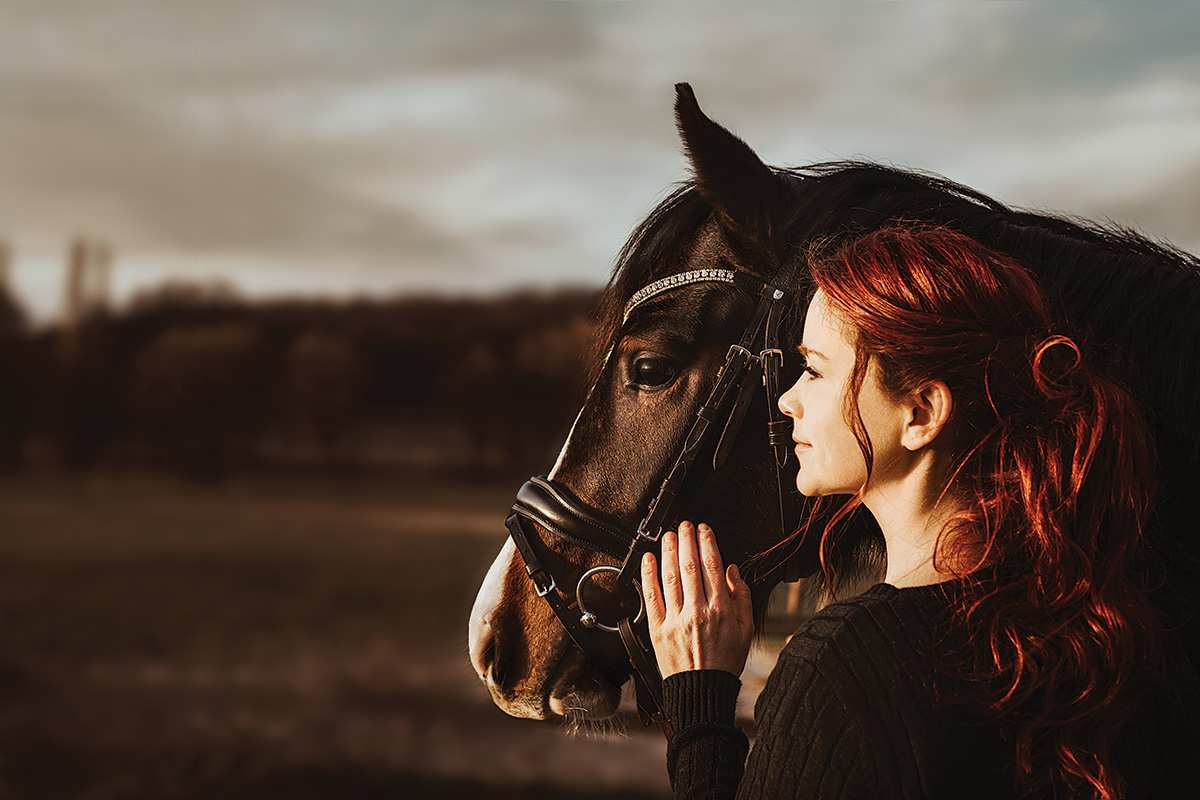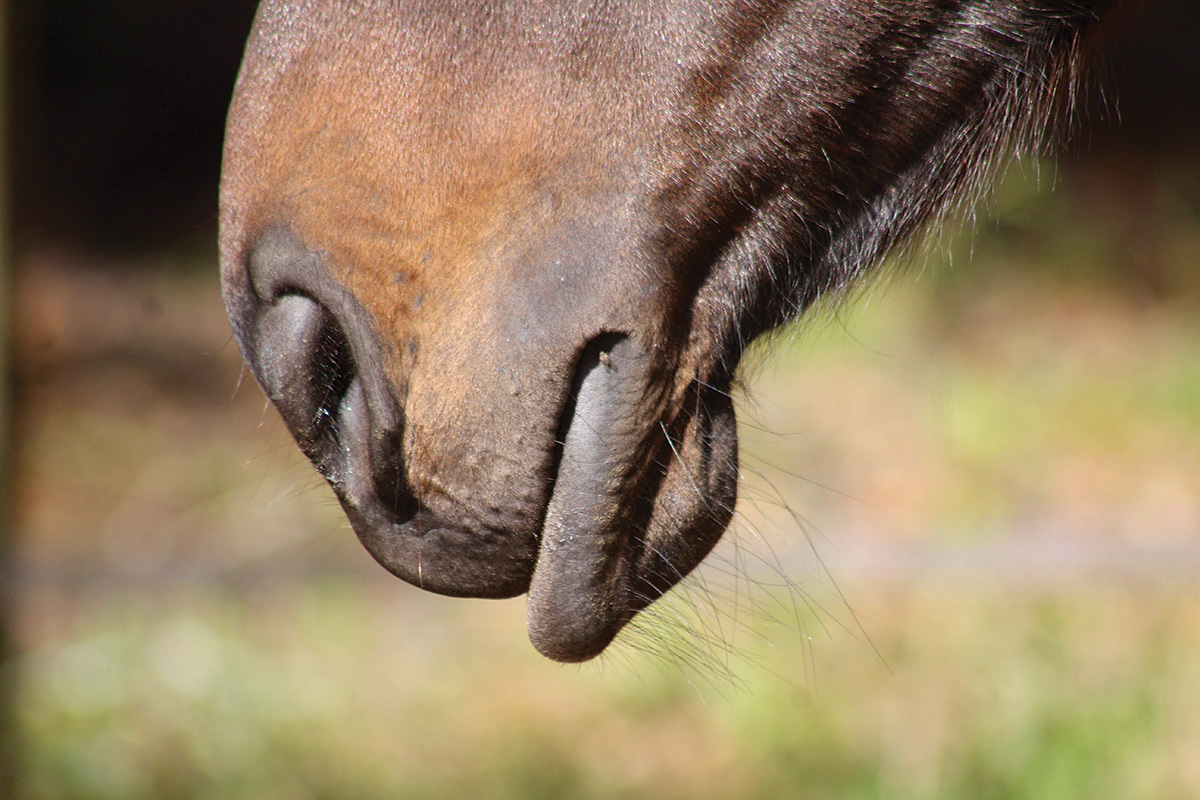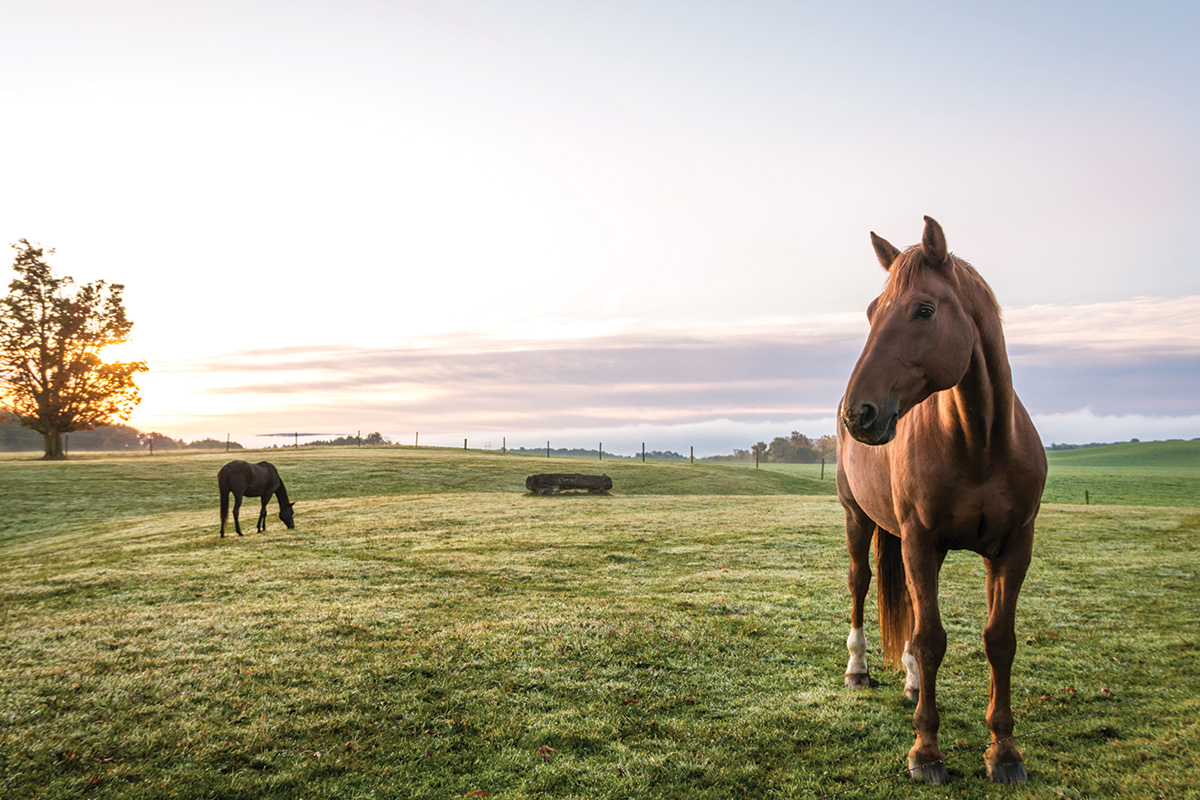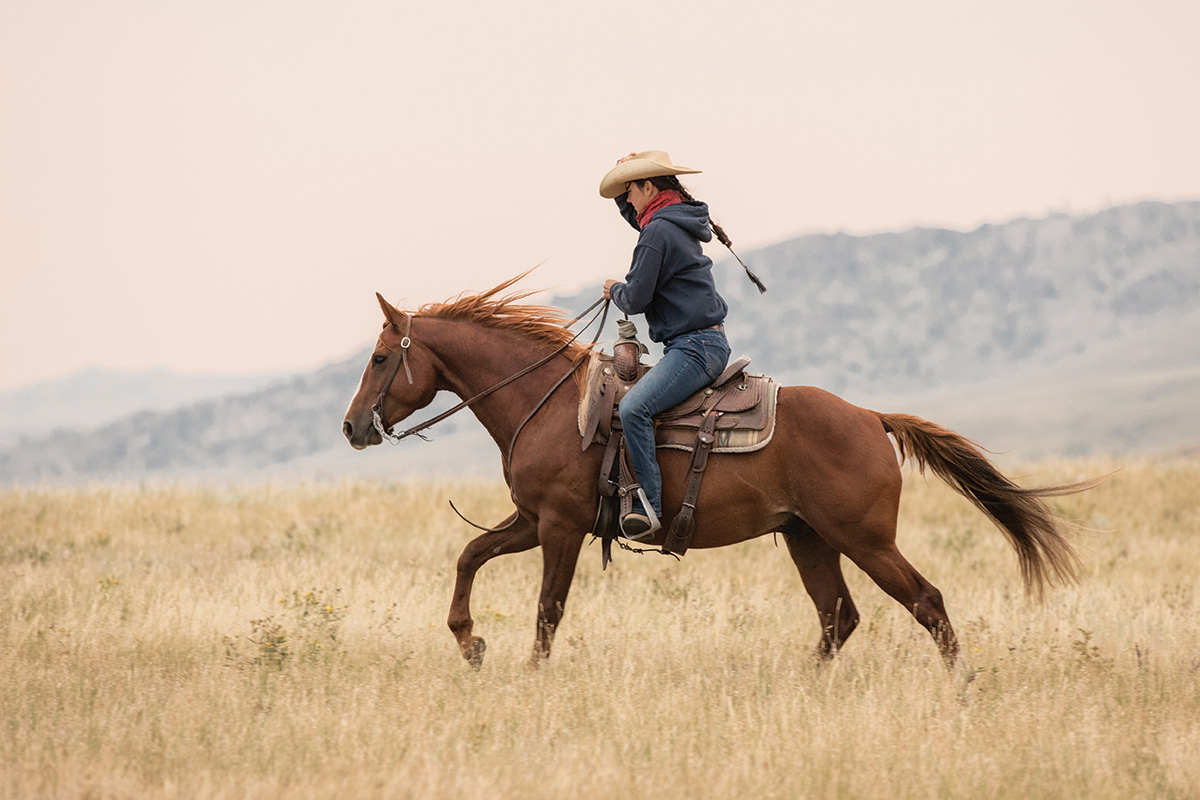
“Happiness — it’s one issue that we see in horses,” says Esther Kuhlmann of Northland Equine Programs and Educating close to Kansas Metropolis, Mo. “Do you have to work with horses, they converse to you and inform you methods they’re feeling. They get a singular gleam of their eyes; it’s one issue that you just merely be taught over time.”
Bucking, kicking out, or inserting their ears as soon as extra are all indicators of displeasure in horses. Kuhlmann furthermore says to try facial expressions, akin to rigidity contained in the nostrils, ears and eyes.
“These indicators of misery and displeasure are very dependable, nonetheless after we don’t see these indicators of unhappiness, don’t shortly assume {{{that a}}} horse is completely glad,” says Robin Foster, Ph.D., CAAB, licensed equine behaviorist and college professor. “Traditionally, there was emphasis on the absence of indicators of unhappiness or misery, with a give consideration to assuming that if the horse shouldn’t be going to be displaying misery or displeasure, he have to be totally glad. Now, there may be rising curiosity in on the lookout for indicators of happiness in horses.”
She additional explains the change in analysis focus.
“Present analysis and theoretical curiosity is shifting away from, ‘If it’s not dangerous welfare, it’s sufficient,’” says Foster. “We’re not it that technique anymore. For instance, everybody is aware of {{{that a}}} shut-down horse may very correctly be very confused and under no circumstances displaying any behavioral or physique language indicators of stress. At present, we’re on the lookout for behaviors and physique language indicators that point out a horse is relaxed and content material materials supplies.” This implies a happier horse full.
Seen indicators of leisure and contentment are merely recognizable and might embody:
◆ A horse that’s attentive to and engaged with their setting.
◆ A fragile, spherical eye with widespread blinking.
◆ Barely lowered and extra relaxed head place.
◆ Posture that will not be totally sq.; as an illustration, resting a hind foot.
◆ Relaxed and unfastened backside lip, most likely displaying a barely gaping mouth.

What in case your horse may very correctly be happier? Listed beneath are 5 inquiries to ask your self.
1. Unhappiness or correctly being draw back?
When a horse in educating turns into noticeably “sad,” Kuhlmann says she’ll contact their veterinarian to run a blood panel to make sure the horse shouldn’t be going to be managing by any ache or correctly being challenges.
“It’s one issue I do pretty quick,” she says. “They might have a chipped tooth or want physique work accomplished from their chiropractor. It doesn’t take masses.”
2. Is your horse social?
“If horses don’t have a social life with completely completely different horsesand a wealthy, tough setting, likelihood is you may guess that impacts their full conduct,” says Foster. “Regardless of how masses you take care of your horse, people have very tough lives with many requires—the horse being solely one among many. Your life collectively alongside along with your horse is perhaps an hour a day. The time interval an individual spends with their horse may very well be restricted, and what does the horse do the remaining 23 hours?”
3. Is he transferring freely?
“Horses want the flexibility to maneuver freely,” says Foster. “Joyful horses are free to run, roll, flip wildly, race spherical and kick up their heels—not merely change in a set technique, akin to longeing. All of this would possibly play a exercise in a horse’s conduct.”

They prioritize turnout that Kuhlmann's children.
“We don’t protect horses in stalls 24/7,” she says. “I research [stabled horses] to prisoners, in that they solely get one issue to eat when given to them or socialization after we’re saying ‘whats up’ to them. That is the place your cribbing, stress and weaving come from. They’re herd animals and grazers, they usually change better as their joints protect transferring they normally aren’t confined to standing nonetheless in a stall. The extra turnout, the higher for his or her our our our bodies and minds.”
4. Does your horse profit from his job?
“All of us have our limits in what we’re able to or can’t do,” says Kuhlmann. “Do you have to search for a horse, keep in mind that you just merely uncover one who can do what you need and a accomplice who will revenue from the self-discipline they’re in. In case your horse is tight and indignant, he acquired’t get hold of that sport. If that is your solely horse, you will need to do what your horse likes to do.”

5. Is it a partnership or a dictatorship?
“Your horse ought to see you as a accomplice, not the boss of them,” says Kuhlmann. “As an alternative of coming in and exhibiting dominant and in value, it’s additional of a partnership. When you don’t deal with your accomplice appropriate, your accomplice acquired’t deal with you appropriate.”
As masses pleasure as our horses carry to our world, protect these ideas in concepts to carry far more pleasure to theirs.
This textual content material about horse happiness appeared contained in the November/December 2022 subject of Horse Illustrated journal. Click on on on correct proper right here to subscribe!
